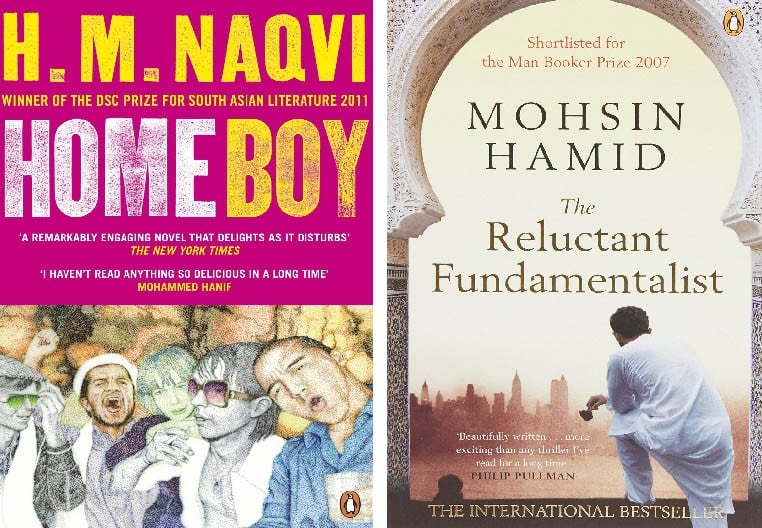
In times of crisis, it is common to revert to what we know. There is safety in the familiar. 9/11, Pakistan, literature, novels, and the gaze of the spectator

I was brushing my teeth. There’s nothing particularly striking about my teeth. Although, they are small, neat. My mobile, placed near the sink, started to ring. An unknown number. I didn’t hesitate to answer because a couple of days earlier I had lost my wallet, and with it, my identity card. Perhaps my identity was being returned to me.
Hello. It was my editor. She wanted me to write about literature after 9/11. "Is the content of novels alone shaping Pakistan’s image or are the novelists also shaping it?" Terrorism, Pakistan, ‘the West’, etc. I’m brushing my teeth, I told her, can I call you back? Perhaps what I should have said is -- do you know most toothpastes contain synthetic foaming agents? And that one of the potential side effects of fluoride, is an impairment in glucose metabolism?
In those minutes, I realised the strangeness of my admission. It was the middle of the afternoon, I was in Hyderabad, and I was brushing my teeth. What was she thinking? Could a man who was brushing his teeth at 2 or 3pm be trusted to write on Pakistan’s image?
Instead, I think -- what toothbrushes do terrorists prefer? How does their terrorism influence their views on flossing? What’s their overall dental hygiene like? I don’t think I’ve ever read about a terrorist brushing his or her teeth. Do they brush their teeth before their terrorism? Do they brush in the bathroom, or outdoors? Why don’t our stories begin in the toilet? In the so-called West, this must be one of the most important questions. Similar to a movie when you’re counting how many bullets the hero has left in his gun and why he isn’t running out of ammo. These details, however unnecessary they appear on the surface, make a difference. Let’s forget the terrorists, does violence eat with teeth, are our biases nourished by eating teeth?
When she called back a few moments later, I tried to explain. I’m touring Hyderabad with a Spanish-German poet, I’ve just had a very big meal, local specialities, and I’ll be soon on my way to a poetry recital. But before that, we will visit a ‘re-affirming’ museum, and I want my teeth to be fresh. I could sense the tenseness. She nervously laughed. She wasn’t at all interested in my teeth. Whereas I felt that there was something very important I wanted to say about them.
Some of the biggest crimes are committed through familiarity. The crime begins with the self. It begins when we assume we know. When we assume we don’t need to find out, but lurking beneath are vulnerabilities and fears. How do we handle them? I know my teeth, I do, they’ve been with me for years. I know my gums, know their weaknesses. But I also don’t know them. Let’s accept that.
Read also: Soft versus hard
It’s terrifying on one level; how can I possibly not know my teeth? Today, I looked again, and I looked at them as if I had never seen them before. They were different, certainly mine, but also new, because I wasn’t looking at them with familiarity. They were teeth in me, but not my teeth.
As I look at my teeth, I look at them with a different history, with a perspective unique to the moment and to the situation. This specificity of the moment is holy, unrepeatable. If I am arrogant, if I exhibit knowledge, I will look at them as a set of teeth, not as 32 individuals, not as tooth, but as teeth. Take the "content of Pakistani novels post-9/11." Are they respectful of the purity of the encounter? Or do they assume a knowledge, do they encourage a familiarity, a comfortable understanding?
The best literature isn’t didactic. No. The best novels are acted out in a boxing ring, where the novel and the reader take swings. The novel unravels assumptions, dices beliefs, and emboldens the reader to go deeper within himself, to be truer, more him. A novel that confirms what is known is a weak novel. A novel that heightens familiarity is a weak novel. A novel that takes the reader into an unfamiliar place whilst also creating the sensation of familiarity and intimacy, without the knowledge of knowledge, that is a good novel. The same can be said about a good set of teeth, they are unreliably reliable.
In times of crisis, it is common to revert to what we know. There is safety in the familiar. 9/11. Pakistan. Literature. Novels. Tooth and teeth. The gaze of the spectator. Can we truly say that we have thought deeply about our gaze, the way we view our teeth, know ourselves? Can we truly say that we aren’t influenced by a world-within-a-moment that is in distinction to another, and another?
If we are, then how respectful are we to what is other? If we aren’t, and if these moments, amalgamated, congealed, constellated, remain moments, remain gazes within gazes, then we have succeeded, because we respect the teeth as tooth, the tooth as calcified structure, as cells. Then these novels, this literature, these gazes, we can accept them, we can give them capacity, and allow for greater capacity within ourselves. But if these gazes, these teeth, help reinforce what we think we know, help us confirm our suspicions and uncertainties, then we have many questions yet to answer. We shrink, where we should expand. We answer, when we should question. I don’t know how the content of my teeth influence me. I don’t feel their pain. I feel mine.